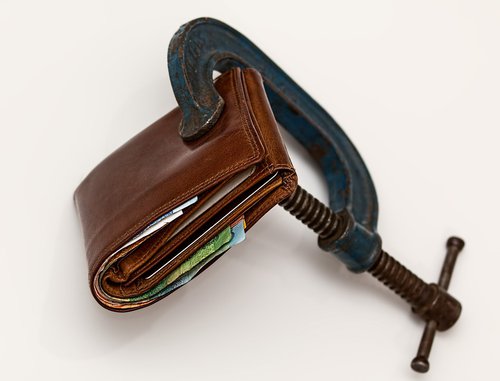
THE PROS AND CONS OF CHAPTER 13 BANKRUPTCY
 Protection under bankruptcy can help individuals and businesses to reorganize financial matters, especially when repossession of a major asset or foreclosure on real property looms. Most financial experts recommend bankruptcy as a last resort. When bankruptcy becomes necessary, the individual or business should seek bankruptcy advice from an experienced bankruptcy lawyer.
Protection under bankruptcy can help individuals and businesses to reorganize financial matters, especially when repossession of a major asset or foreclosure on real property looms. Most financial experts recommend bankruptcy as a last resort. When bankruptcy becomes necessary, the individual or business should seek bankruptcy advice from an experienced bankruptcy lawyer.
Although Chapter 7 bankruptcy can effectively reduce some debt, liquidation of property may be required to satisfy lenders. In comparison, Chapter 13 bankruptcy can help to retain property. Let’s review the pros and cons of Chapter 13.
Chapter 13 Bankruptcy Pros
The primary advantage of Chapter 13 bankruptcy is that the petitioner keeps all of his or her property. In this type of bankruptcy, the trustee does not liquidate property to pay back creditors. The debtor repays creditors according to an arranged payment plan over a certain period of time.
Importantly, cosigners on any of the debt in a Chapter 13 plan aren’t affected. They’re kept out of the Chapter 13 bankruptcy proceedings.
Many people seek the protection of bankruptcy because creditors and debtors are difficult to manage. Even though state and federal credit laws are designed to protect individuals and businesses, many are complex and confusing. An experienced bankruptcy attorney can immediately stop collection calls and negotiate improved terms for debt repayment.
In a Chapter 13 bankruptcy, the bankruptcy attorney will seek to arrange an affordable debt repayment plan. By reducing monthly payments to a manageable level, clients get back in control. The crushing burden of working to pay lenders is relieved.
A bankruptcy attorney’s resource role doesn’t end once the bankruptcy is complete. Clients can benefit from their attorney when questions about how to live on a budget or rebuild credit come up. Making new major purchases on credit, such as a new car or home, and re-establishing financial security by saving and investing for the future are frequent discussion topics.
Chapter 13 Bankruptcy Cons
A Chapter 13 filing doesn’t fully eliminate debt. The debtor is still required to repay all his or her bills over time. In some circumstances, it’s possible to reduce the total amount that must be paid—but it’s still necessary to repay something to lenders over the agreed upon period of time.
Most Chapter 13 bankruptcies’ obligations are completed in several years. Some Chapter 13 bankruptcies have a longer time horizon of up to five years. Since this type of bankruptcy takes longer to complete than Chapter 7s, legal fees are also higher. More time is often needed to arrange the repayment plan.
For many reasons, it’s important to choose a bankruptcy attorney the client can trust. After all, the client-attorney relationship is going to span at least several years.
Reasons to Consider Chapter 13 Bankruptcy
Not every individual or business considering bankruptcy is broke or poor. Entrepreneurs and small business owners or skilled people experiencing an extended jobless period may have assets but not enough available cash to repay debts as agreed.
Clients frequently say they once made much more money than they do today. Former affluence is one of the most common reasons to consider Chapter 13. During economic recessions or tightening credit economies, it’s possible for an entrepreneur, small business owner, or unemployed skilled or professional worker to struggle with bills.
Loss of middle class footing can happen quickly as well. Real estate purchased in a buoyant economy can lose value just like other financial assets but mortgage payments don't go down. Owing a significant amount of money to creditors and lenders can be extremely stressful, even when clients want to pay their bills on time and as agreed.
Chapter 13 Bankruptcy and Credit
Clients with assets to protect want protection from creditors and credit reporting agencies (CRAs). Having a good credit score is important to living well in the United States.
Declaring bankruptcy will initially affect credit scores. A bankruptcy can remain on credit reports for as long as 10 years. However, an experienced bankruptcy attorney can help his or her clients to initiate credit repair almost instantly. Repairing credit isn’t instant, but it is usually possible to quickly establish new credit lines after bankruptcy.
Chapter 13 petitioners aren’t walking away from debt. They’re renegotiating credit terms and extending the time to repay debtors. With careful credit repair, it’s possible to restore or improve credit scores from pre-bankruptcy levels.
Chapter 13 Bankruptcy and You
People who are considering bankruptcy are frequently presented with so-called alternatives to bankruptcy, such as debt settlement or debt consolidation. If the individual or family is facing an imminent financial threat such as repossession or foreclosure, it’s important to know that none of these alternatives offer the asset protection potential of bankruptcy.
Get the facts about bankruptcy. Schedule a no cost complimentary meeting to learn more. Georgia Debt Relief of Savannah GA is passionate about their pursuit of good outcomes for their clients. Instead of getting stressed out, talk to an expert about managing your debt today.